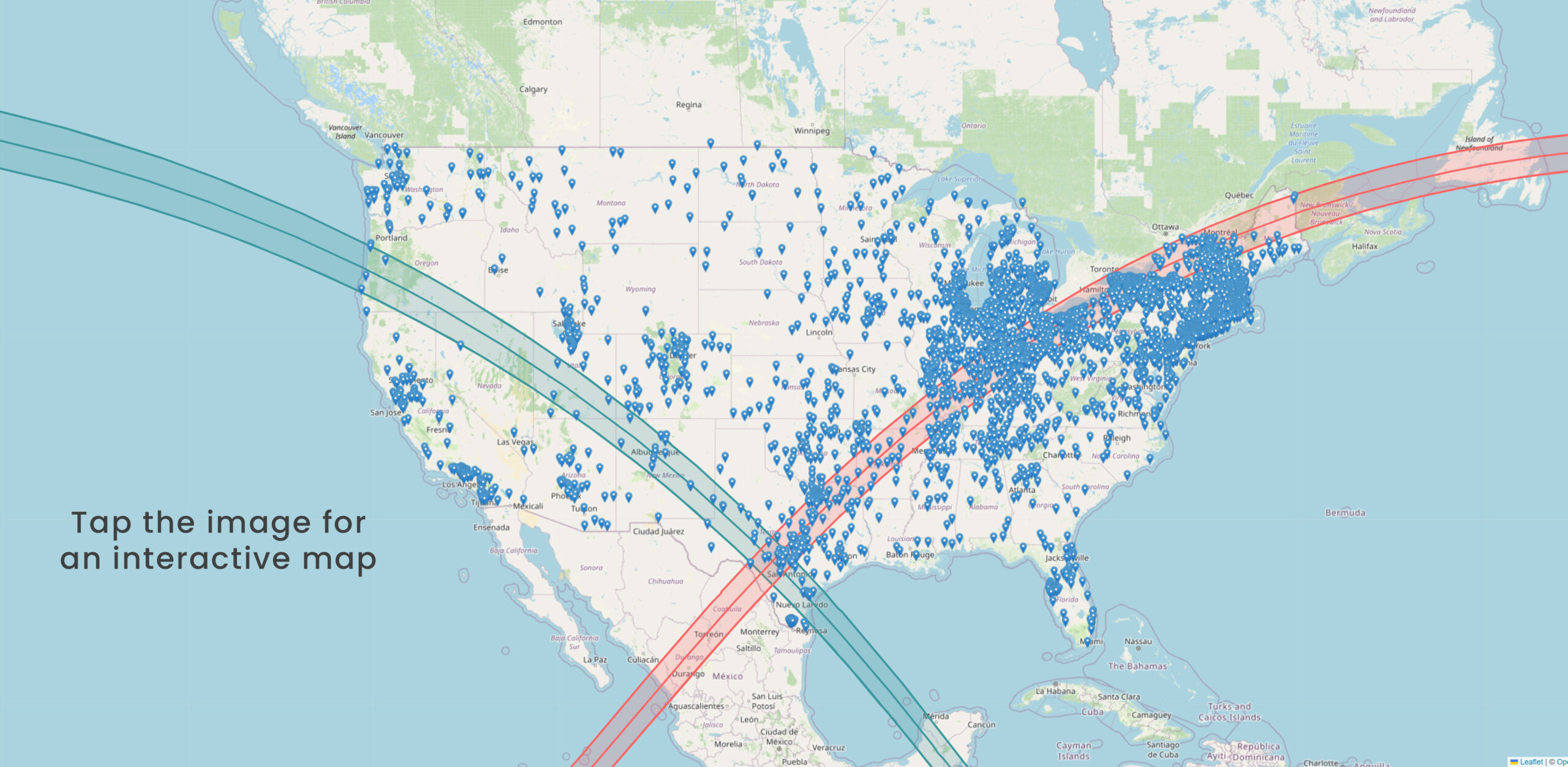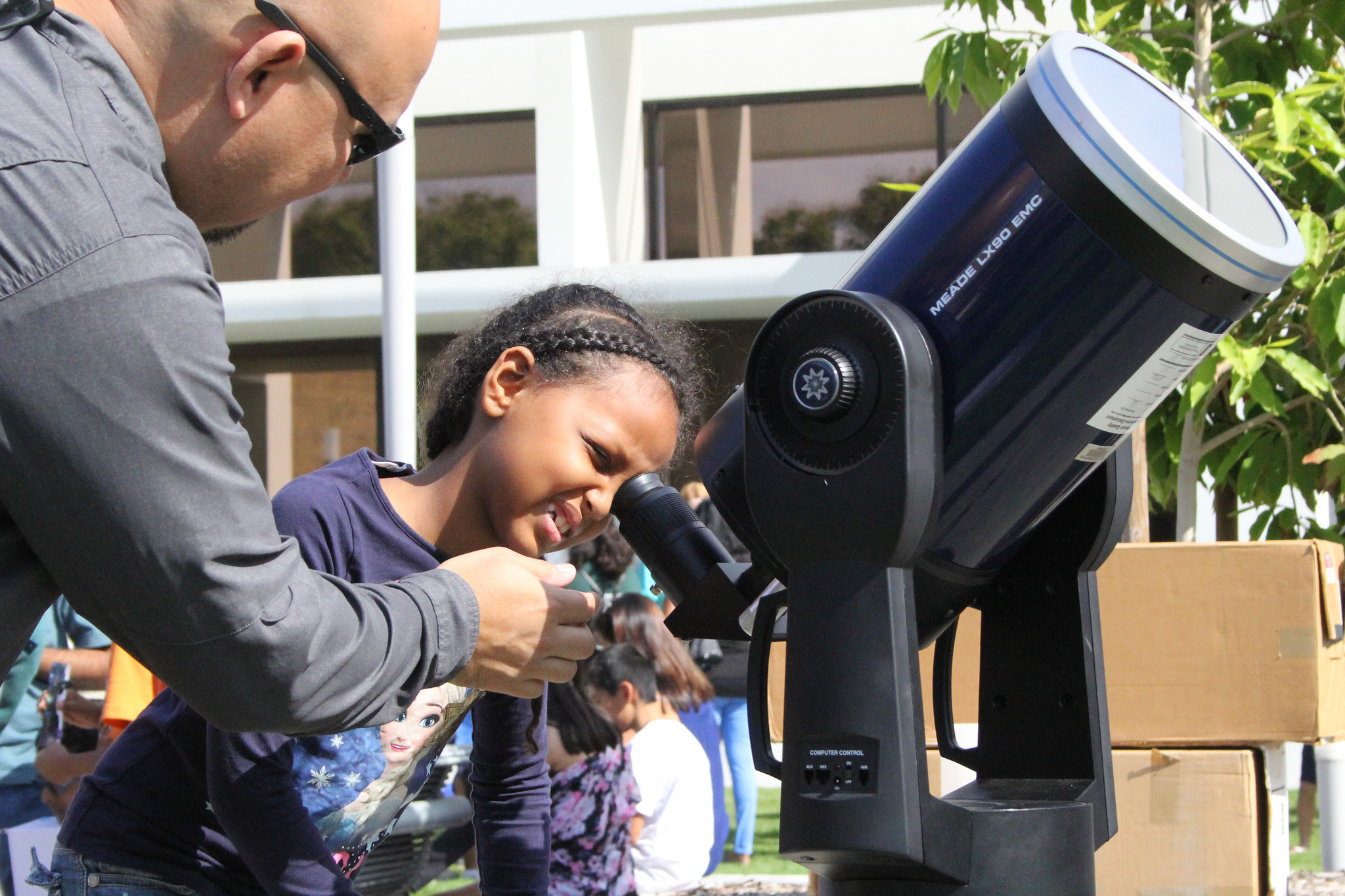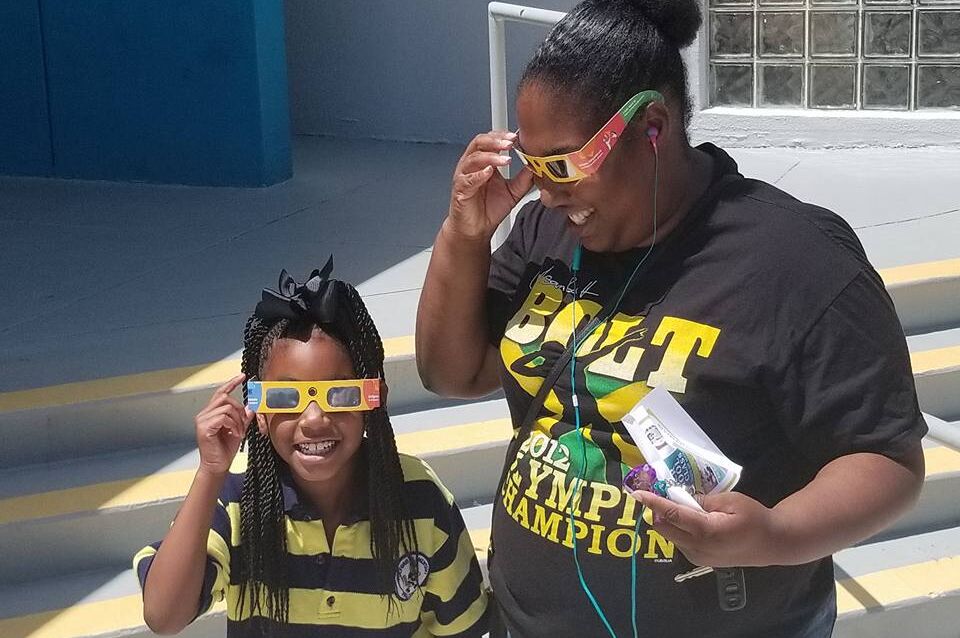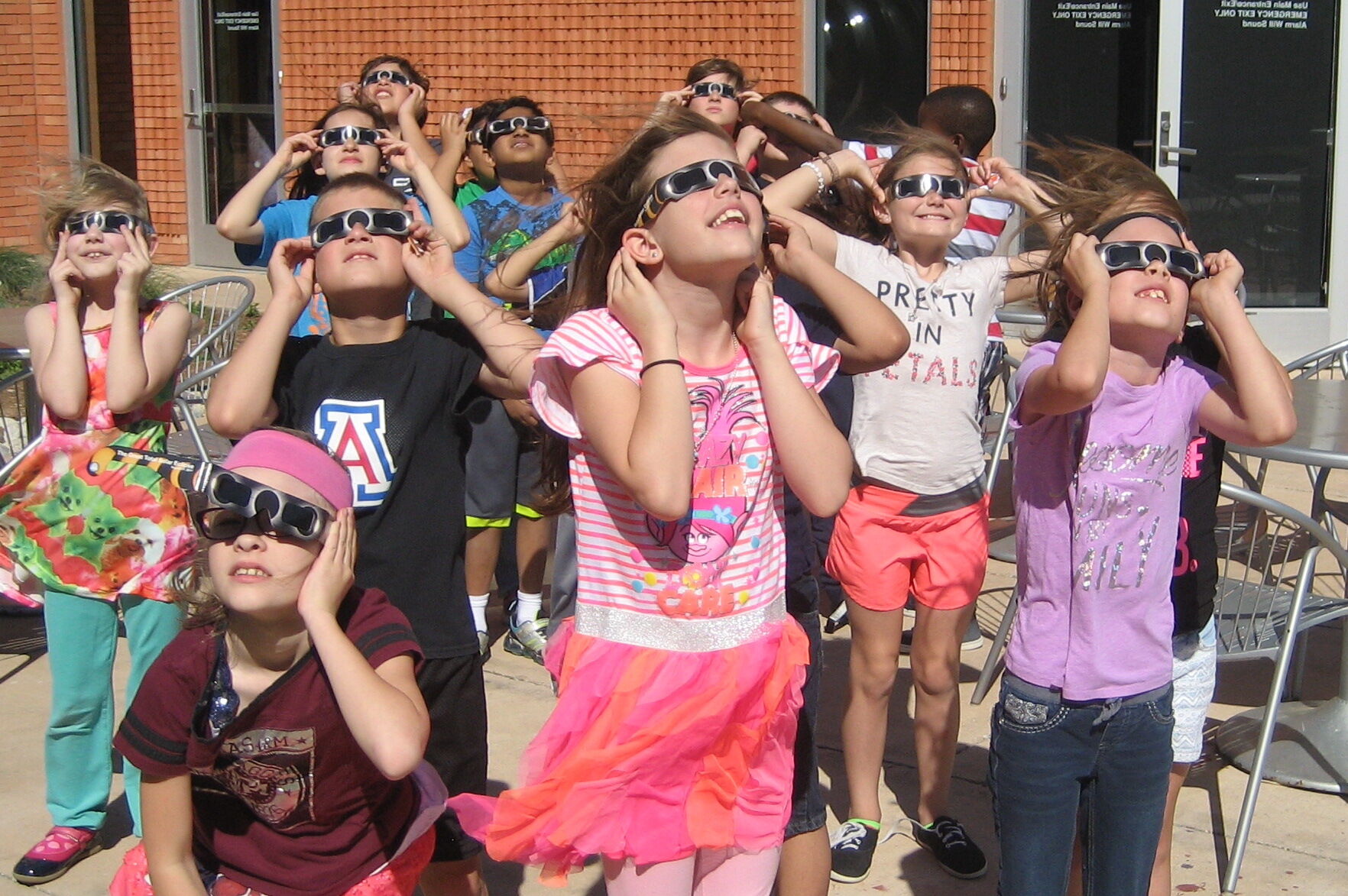Solar Eclipse Activities for Libraries (SEAL)
We have closed registration for glasses due to limited supply. We apologize to anyone who was hoping registration would reopen but we would not be able to guarantee fulfillment for any new orders placed.
If you were unable to register for glasses with us, there are still options to buy pairs directly through any of the reputable vendors listed by the American Astronomical Society:
Suppliers of Safe Solar Viewers & Filters | Solar Eclipse Across America (aas.org)
For eclipse resources for libraries or indirect ways to view the eclipse, you can go to our Getting started with SEAL page:
Or sign up for our community site:
Create an Account – STAR Net Community (starnetlibraries.org)
Or newsletter:
Two solar eclipses are coming to North America! An annular eclipse occurs on Saturday, October 14, 2023, and a total eclipse occurs on Monday, April 8, 2024.
It is time for librarians to prepare their patrons for the eclipses
With funding from the Gordon and Betty Moore Foundation, the Space Science Institute, through its Solar Eclipse Activities for Libraries (SEAL) program is distributing five-million solar-viewing glasses to 10,000 libraries, plus providing information and activities to share with library patrons. In addition, workshops for librarians are being held across the country to ensure library patrons can safely enjoy these spectacular celestial events.
Below are statistics showing how well we are doing and a map of participating libraries. If you scroll further down, you can see how you can be involved or get the latest information and activities regarding the eclipses.
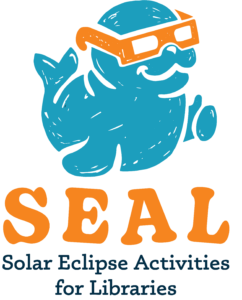
Resources
Register Now to receive FREE Eclipse Glasses for Your Public Library!
To Register you must:
- Be a public library in the U.S., D.C., or in a territory or protectorate
- Agree to distribute glasses for free at eclipse events
- Provide a signed letter from your library director agreeing to the above
Ready? Register HERE!
Read More about the Eclipse
The SEAL team has developed a robust guide for public libraries and their communities in advance of the 2023 and 2024 eclipses. This booklet will introduce library staff and their patrons to eclipse science and viewing. It provides a range of ideas for library eclipse events and community partners that libraries can enlist for help. Pages 28 through 34 contain two handouts for patrons, in both English and Spanish: one for the 2023 annular eclipse, and the other for the 2024 total eclipse. Each is two pages and formatted for printing on a single double-sided sheet of paper so they can be easily shared with the public.
Annular Eclipse, Saturday, October 14, 2023
- For the U.S., the annular eclipse path begins in Oregon at 9:13 am PDT and ends in Texas at 12:03 pm CDT.
- All the rest of North America (except for NW Alaska) will experience a nice partial eclipse in the morning that day.
- Find out if your specific location is on the 2023 path using Eclipse Simulator.
- In an annular eclipse, the Sun never goes dark. At maximum eclipse, you can see a dramatic “ring of fire” around the dark sphere of the Moon.
- Just like for a total eclipse, you need to be in a narrow path to see the ring.
- Because the full Sun never goes dark, you will need special protective glasses or filters throughout the eclipse.
Total Eclipse, Monday, April 8, 2024
- An excellent TOTAL eclipse of the Sun will be visible the U.S. in 2024.
- Totality will be visible first in Mexico, coming to Texas just after noon local time.
- The eclipse then moves northeast through Oklahoma, Missouri, Ohio, New York, and Maine, to name just a few of the states, and into Canada.
- In the Northeast, totality will be around 3:00 to 3:30 pm, so, in most of the U.S., students may be in school for the eclipse.
- In Mexico and South Texas the total eclipse will last over 4 minutes, which is good for a total eclipse.
- All the rest of North America will see a partial eclipse.
- Find out if your specific location is on the 2024 path using Eclipse Simulator.
- The path of totality, where the Sun is blocked out completely by the Moon getting exactly in front of it, is over 100 miles wide, and passes over more cities than the eclipse in 2017.
- Plan ahead – 32 million people live along the path of totality, and many millions will try to get there on April 7th and 8th.
- By the way, the next total eclipse to cross the continental US will not be until Aug. 12, 2045, so don’t miss this one!
Keep your eyes protected when looking at the Sun. You can’t use regular sunglasses, you need eclipse glasses or to look through a telescope with a solar filter. Check our many activities for safe eclipse viewing.
See the American Astronomical Society site about safe eclipse viewing for reliable information.
We are excited to provide eclipse glasses as part of this project! You can now register!
Text by Andrew Fraknoi, SEAL Project Team
Exciting eclipse activities the project team will conduct:
- Deliver eclipse glasses, educational materials, and online training to 6,000 library systems
- Provide circulating solar science kits to all 50 State Library Agencies
- Offer in-person workshops in coordination with all 50 State Library Agencies
- Eclipse education activities in non-library community sites will also be conducted
Project Vision
By training librarians to do eclipse activities, we’ll increase the learning opportunities for library patrons throughout the United States.
To learn more about this exciting program, please read the full press release, available HERE.
Project Team
- Anne Holland (NCIL/SSI)
- James Harold (NCIL/SSI)
- Andrew Fraknoi (From Institute, Astronomical Society of the Pacific)
- Dennis Schatz (Institute for Learning Innovation)
- Amy Briones (NCIL/SSI)
- Beatrice Chavez (NCIL/SSI)
- Dillon Connelly (NCIL/SSI)
- Brooks Mitchell (NCIL/SSI)
- Claire Ratcliffe Adams (NCIL/SSI)
- Evaldas Vidugiris (NCIL/SSI)
- Stephanie Vierow-Fields (NCIL/SSI)


